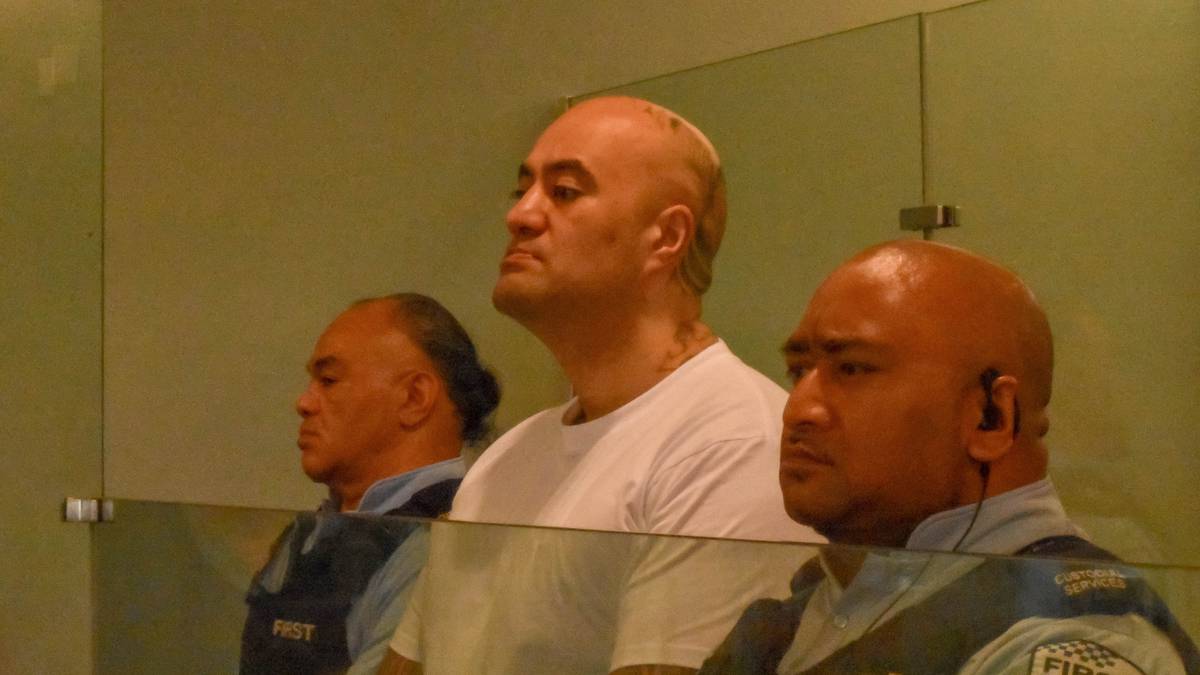An Auckland man who shot and killed his former partner in front of their young son was described as cowardly and barbaric as he was sentenced to life with a minimum non-parole period of just over 13 years for her murder.
Colin Rameka, 36, appeared for sentence in the High Court at Auckland before Justice Neil Campbell on Tuesday after a jury found him guilty of murdering Aitasi Carmella Hohenberger in Henderson on July 12, 2022.
Hohenberger, known as “Cammie”, was described by her family as a devoted mother.
The 34-year-old worked at the Ministry of Social Development and is survived by her children.
They are now being cared for by Hohenberger’s mother, who spoke in court to describe the damage Rameka inflicted.
“The pain of her absence is a burden I carry with me every moment of every day,” her mother said.
“The pain of how her life ended in such a cowardly, barbaric, hideous, torturous and cruel manner. Cammie was not just my daughter, she was my confidante, my rock, my greatest source of joy.”
She said the circumstances surrounding her daughter’s murder, including the fact it was witnessed by her son and the terror and violence of her final moments, compounded the pain of her loss.
Hohenberger’s sister, who was present at the home in Newington Rd, Henderson when the killing happened in a driveway outside, urged the judge to impose a strong sentence in honour of Cammie and “in solidarity with victims of domestic violence”.
Her son, in a written victim impact statement read to the court, said he still missed his mother.
“Nothing can get rid of the pain of losing my mother in such a stupid and senseless manner,” he said.
“I will never forget the sound of the gunshot, the look of terror on my mother’s face and the feeling of helplessness as I watched her fall to the ground.”
Rameka and Hohenberger had been in a relationship for about 13 years when they separated in 2020.
They had two children, who still saw their father regularly. On Saturday, July 9, 2022, their son went to stay with Rameka at his Pukekohe home.
/cloudfront-ap-southeast-2.images.arcpublishing.com/nzme/7FZNKPAJHZH2XEEKFF2B2L2OGU.jpg)
Rameka had previously suffered from acute psychosis in the form of schizophrenia. At the time of the killing he was on bail.
Two experts at his trial disagreed as to whether he was psychotic when he murdered Hohenberger.
Justice Campbell said text messages Rameka sent were consistent with someone experiencing delusions. The judge concluded he was at least to some extent suffering from a recurrence of psychosis at the time.
Rameka eventually arranged to return his son to his mother at her Henderson home on the evening of July 12.
When evening came, he placed a loaded, semi-automatic .22 calibre rifle into the boot of his car before driving to West Auckland.
Upon arrival at his former partner’s home in Henderson he reversed his car down the driveway and told his son to wait in the car.
Hohenberger was standing just outside her garage. Rameka took the rifle from his boot and shot her four times from close range in quick succession. His final shot came as she was lying on the ground.
She was killed instantly.
Her son watched the shooting unfold and opened the car door to see his mother lying dead on the ground.
Rameka got back in the car and dropped his son at his grandmother’s house, telling him it was likely the last time he would see him.
The young boy had to tell his grandmother his father had shot his mother.
Police arrested Rameka later that night, finding ammunition and a rifle in his car and more ammunition at his home.
/cloudfront-ap-southeast-2.images.arcpublishing.com/nzme/ENUBSCZL7BA2HDLL5JBDAVE7JQ.jpg)
Under Section 104 of the Sentencing Act, the Crown must impose a minimum period of imprisonment of 17 years on a life sentence for murder if the killing was committed with a high level of brutality, cruelty, depravity or callousness.
Crown prosecutor Brett Tantrum said the 17-year non-parole period was appropriate given the high level of cruelty and callousness Rameka showed in using a firearm to execute Hohenberger in front of their 10-year-old son.
Rameka’s lawyer Annabel Ives said the legal provision mandating at least 17 years for especially callous murders should not be engaged.
“Obviously this case is a tragedy, but the provision requires an exceptional level of callousness,” Ives said.
She said it would be manifestly unjust to engage the 17-year period given her client’s psychosis, which Ives also cited as a factor that warranted a reduction in the minimum period of imprisonment of up to 20 per cent.
Justice Campbell agreed with Ives.
“The reality is that there are many cases that are of a much higher degree of callousness or cruelty than even yours, Mr Rameka,” he said.
“As callous and cruel as your actions were I consider they do not quite reach that threshold.”
The judge said Rameka’s cultural report was unusual in that it described a loving and supportive background in a close-knit whānau.
Both his parents, who were present at the trial, had worked hard to support their children, who did not lack for food or affection, Justice Campbell said.
“This is not on them, Mr Rameka, it’s on you.”
Instead, the causes of his offending – mainly gangs and meth – emerged in adulthood.
Were it not for Rameka’s mental illness, the judge, said he would have imposed a minimum period of imprisonment of 14 years on his life sentence, but he instead adopted 13 years, increased by three months for the time he spent on bail.
For the firearms charges covering unlawful possession of a firearm and ammunition, Justice Cambell imposed six years, to be served concurrently.
George Block is an Auckland-based reporter with a focus on police, the courts, prisons and defence. He joined the Herald in 2022 and has previously worked at Stuff in Auckland and the Otago Daily Times in Dunedin.




 Trial for Tesla driver after death of young Auckland lawyer Shubham Kaur
Trial for Tesla driver after death of young Auckland lawyer Shubham Kaur